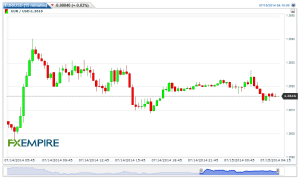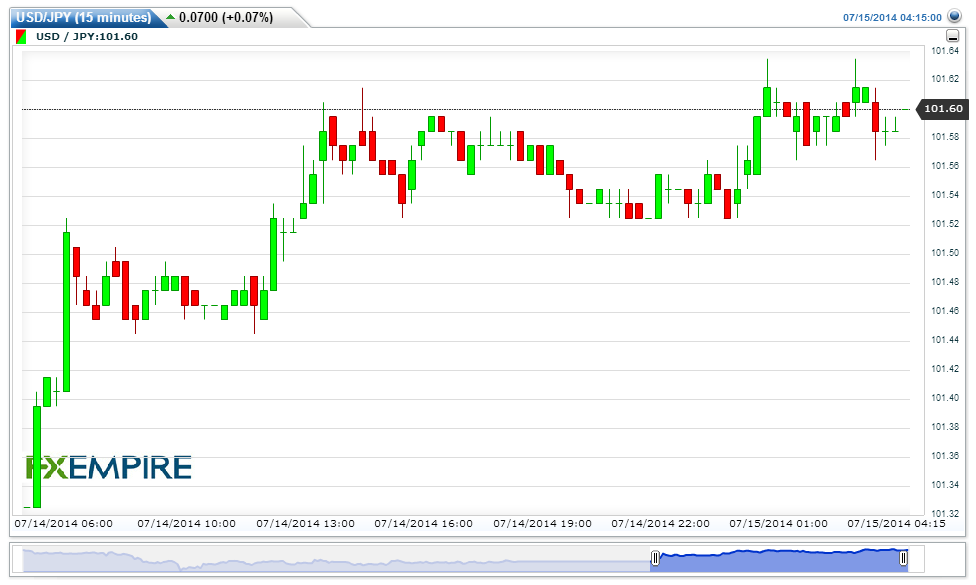Asian markets are trading on a mixed note today ahead of the Bank of Japan (BOJ) monetary policy meeting today. The US Dollar Index traded on a flat note and declined marginally yesterday on the back of rise in risk appetite in market sentiments which led to decline in demand for low yielding currency. Further, hint towards rise in interest rates by US Federal Reserve in its minutes meeting in the last week continued with downside movement in the DX. The currency touched an intra-day low of 80.12 and closed at 80.23 and climbed this morning to trade at 80.24. . Asian stocks rose for a second day after Citigroup Inc (NYSE:C) reported better-than-forecast profit, boosting confidence that earnings growth can sustain further gains in shares. US stocks ended higher on Monday, with the Dow Jones industrial average hitting an intraday record, lifted by Citigroup’s better-than-expected earnings and more deals in the healthcare space.
The euro traded on a positive note and gained about 1% on Monday to ease this morning to trade at 1.3617 down by 3 points as traders worried about a lackluster industrial production report which declined by 1.1% in May against a rise of 0.8% in previous month. European Central Bank’s Mario Draghi said that a stronger euro would put at risk the shaky recovery in the 18 countries that use the shared currency. Draghi made the remark to legislators in the European Parliament in Strasbourg amid worries that the modest rebound in Europe is stalling. Data showed industrial production fell by 1.1 percent in May in the currency zone. A stronger euro would hurt export-dependent businesses. However Draghi offered no new steps to boost the economy beyond the raft of measures the bank announced on May 8. Markets shrugged off the remark and the euro traded little changed at around $1.36.

Asked about asset purchases, Draghi referred legislators to statements from the bank’s previous meetings where it has said it is ready to deploy such unconventional tools if the inflation outlook worsens and prices levels do not eventually start rising toward the bank’s goal of just under 2 percent. Some economists think Draghi and the ECB will be reluctant to go down that route, partly because of technical problems such as how to buy assets – and which ones – across a currency bloc comprising 18 countries.
The yen weakened against the dollar, euro and British pound Monday as investors moved money into assets generally seen as riskier and higher yielding, such as equities, ahead of two potentially market-moving central-bank events. The U.S. dollar rose 0.3% versus the yen, to ¥101.58, while the euro and pound are each 0.3% higher versus the yen, to ¥138.33 and ¥173.81, respectively. The BOJ kept monetary policy steady as expected and trimmed its economic growth forecast for the current fiscal year to March 2015 to reflect soft exports and a slump in household spending after a sales tax increase.
